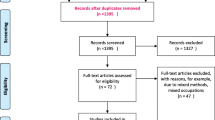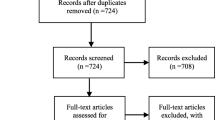Abstract
A growing group of inpatients on acute clinical teaching units have non-acute needs, yet require attention by the team. While anecdotally, these patients have inspired frustration and resource pressures in clinical settings, little is known about the ways in which they influence physician perceptions of the learning environment. This qualitative study explored residents’ and attending physicians’ perceptions of caring for these patients, including their educational value. Using constructivist grounded theory, we conducted seven homogeneous focus groups and three interviews with residents and attending physicians from neurology and general internal medicine. A constant comparative analytical approach was employed alongside data collection, using theoretical sampling to explore emergent themes. Residents consistently described non-acute patients as non-educational, uninteresting, but still in need of care. Some attending physicians echoed this view, while others described multiple learning opportunities presented by non-acute patients. Both groups described residents as engaging with non-acute patients in a professional capacity, but not as learners. This engagement in a professional capacity could be considered diligent disinterest, or resigned professionalism. A constructivist understanding of the dynamics which influence learning in the workplace was used to explore the reasons why the residents in our study did not recognize the learning opportunities presented by non-acute patients. Our results resonate with Billett’s theory of workplace affordances, which offers an explanation as to why learners may not identify or take advantage of potential learning opportunities. Overall, our study assists our understanding of the sociocultural factors that influence learners’ choices to engage with particular clinical learning opportunities.
Similar content being viewed by others
References
Apker, J., & Eggly, S. (2004). Communicating professional identity in medical socialization: Considering the ideological discourse of morning report. Qualitative Health Research, 14(3), 411–429.
Billett, S. (2001). Learning through work: Workplace affordances and individual engagement. Journal of Workplace Learning, 13(5), 209–214.
Billett, S. (2002). Workplace pedagogic practice: Co-participation and learning. British Journal of Educational Studies, 50(4), 457–481.
Billett, S. (2008). Learning throughout working life: A relational interdependence between social and individual agency. British Journal of Educational Studies, 155(1), 39–58.
Billett, S. (2011). Subjectivity, self and personal agency in learning through and for work. In M. Malloch (Ed.), Sage handbook of workplace learning (pp. 60–72). Thousand Oaks, CA: Sage.
Boex, J. R., & Leahy, P. J. (2003). Understanding residents’ work: Moving beyond counting hours to assessing educational value. Academic Medicine, 78(9), 939–944.
Brasel, K. J., Pierre, A. L., & Weigelt, J. A. (2004). Resident work hours: What they are really doing. Archives of Surgery, 139(5), 490–494.
Canadian Institute for Health Information (2008). Alternate level of care in Canada. Ottawa: CIHI.
Canadian Institute for Health Information (2010). Health Care in Canada 2010. Ottawa: CIHI.
Canadian Institute for Health Information (2011). Health care in Canada 2011: Focus on seniors and aging. Ottawa: CIHI.
Charmaz, K. (2006). Constructing grounded theory : A practical guide through qualitative analysis. London: Sage.
Charmaz, K. (2004). Grounded theory. In S. N. Hesse-Biber & P. Leavy (Eds.), Approaches to qualitative research. New York: Oxford.
Costa, A. P., & Hirdes, J. P. (2010). Clinical characteristics and service needs of alternate level of care patients waiting for long term care in Ontario hospitals. Healthcare Policy, 6(1), 33–46.
d’Alché-Gautier, M.-J., Maïza, D., & Chastang, F. (2004). Assessing the appropriateness of hospitalisation days in a French University Hospital. International journal of health care quality assurance, 17(2), 87–91.
Elmes, M., & Gemmill, G. (1990). The psychodynamics of mindlessness and dissent in small groups. Small Group Research, 21(1), 28–44.
Fitzgibbons, J. P., Bordley, D. R., Berkowitz, L. R., Miller, B. W., & Henderson, M. C. (2006). Redesigning residency education in internal medicine: A position paper from the Association of Program Directors in Internal Medicine. Annals of Internal Medicine, 144(12), 920–926.
Fransoo, R., Martens, P., Prior, H., Burchill, C., Koseva, I., & Rajotte, L. (2013). Who is in our hospitals… And why?. Winnipeg, MB: Manitoba Centre for Health Policy.
Green, J. M. (2007). The changed nature of scut: An absence at the bedside. Annals of Internal Medicine, 147(8), 588.
Gustin, W., Batra, R., Amin, A., & Rucker, L. (2009). Education first: Reforming the first-year curriculum of the internal medicine residency. Academic Medicine, 84(3), 368–373.
Hacking, I. (1999). The social construction of what?. Cambridge, MA: Harvard University Press.
Hsu Blatman, K. (2009). The Institute of Medicine resident work hours recommendations: A resident’s viewpoint. Journal of Clinical Sleep Medicine, 5(1), 13.
Kitzinger, J. (1995). Qualitative research: Introducing focus groups. BMJ, 311, 299–302.
Leung, L. P., Cheng, Y. W., & Fan, K. L. (2011). Evaluation of the appropriateness of acute hospitalisations in Hong Kong. Hong Kong Journal of Emergency Medicine, 18, 277–281.
Lingard, L., Reznick, R., DeVito, I., & Espin, S. (2002). Forming professional identities on the health care team: Discursive constructions of the ‘other’ in the operating room. Medical Education, 36(8), 728–734.
P. A. Consulting Group & Balance of Care Group. (2007). Acute hospital bed review: A review of acute hospital bed use in hospitals in the Republic of Ireland with an Emergency department. Dublin: Health Service Executive.
Panis, L. J. G. G., Verheggen, F. W. S. M., & Pop, P. (2002). To stay or not to stay. The assessment of appropriate hospital stay: A Dutch report. International Journal for Quality in Health Care, 14(1), 55–67.
Quinn, A., & Brunett, P. (2009). Service versus education: Finding the right balance: A Consensus statement from the Council of Emergency Medicine Residency Directors 2009 Academic Assembly “Question 19” Working Group. Academic Emergency Medicine, 16, S15–S18.
Sanfey, H., Cofer, J., Hiatt, J. R., Hyser, M., Jakey, C., Markwell, S., et al. (2011). Service or education: In the eye of the beholder. Archives of Surgery, 146(12), 1389–1395.
Smith, D. E., Johnson, B., & Jones, Y. (2012). Service versus education, what are we talking about? Journal of Surgical Education, 69(3), 432–440.
Statistics Canada (2010). Population projections for Canada, provinces and territories: 2009 to 2036. Ottawa, Canada: Statistics Canada.
Statistics Canada (2011). Population and Demography, Canada Yearbook 2011. Ottawa, ON: Statistics Canada.
Strauss, A. L., & Corbin, J. M. (1998). Basics of qualitative research :techniques and procedures for developing grounded theory (Vol. 2). Thousand Oaks: Sage.
Watling, C. J., & Lingard, L. (2012). Grounded theory in medical education research: AMEE Guide No. 70. Medical Teacher, 34(10), 850–861.
Weinstein, D. F. (2002). Duty hours for resident physicians—Tough choices for teaching hospitals. New England Journal of Medicine, 347(16), 1275–1278.
Acknowledgments
The authors wish to acknowledge the contributions of the participating residents and attending physicians, the thoughtful suggestions of Dr. Tim Dornan, and funding provided by a Faculty Support for Research in Education Grant from the Schulich School of Medicine and Dentistry, Western University.
Author information
Authors and Affiliations
Corresponding author
Rights and permissions
About this article
Cite this article
Vanstone, M., Watling, C., Goldszmidt, M. et al. Resigned professionalism? Non-acute inpatients and resident education. Adv in Health Sci Educ 19, 529–539 (2014). https://doi.org/10.1007/s10459-013-9486-0
Received:
Accepted:
Published:
Issue Date:
DOI: https://doi.org/10.1007/s10459-013-9486-0




